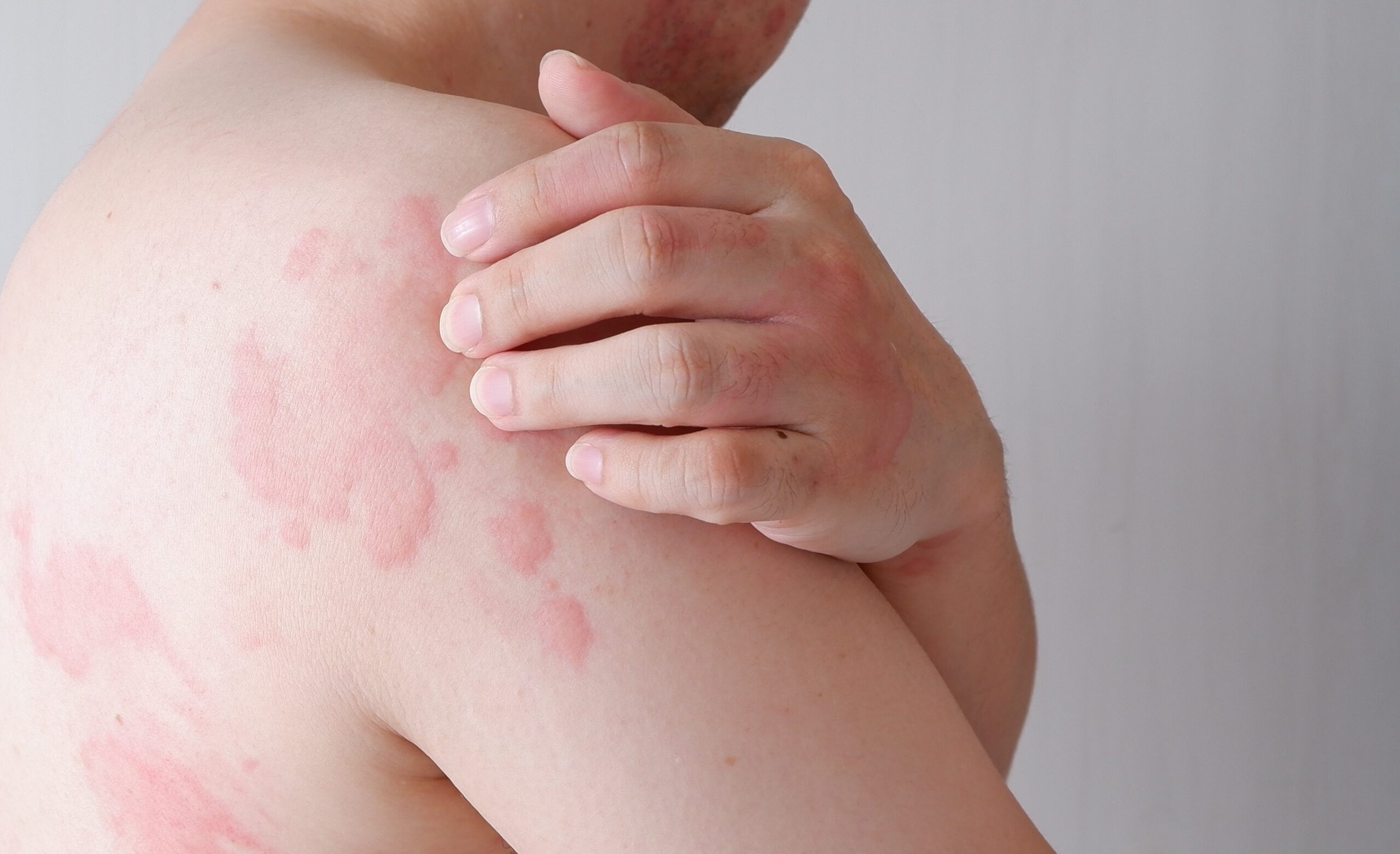
Urticaria, commonly referred to as hives, affects approximately 20% of people worldwide at some point in their lives. These itchy, red, and raised bumps can last for anywhere from a few hours to several months and can have several causes. Many people with hives never figure out what is actually causing the condition.
Let’s take a look at a few of the most common triggers for both acute and chronic hives.
1. FOOD ALLERGIES
Food allergies are one of the most common causes of hives. Some of the foods that often trigger hives are shellfish, mangoes, peanuts, and dairy products. While many people have food allergies, not all will experience hives.
Hives triggered by food allergies can present a serious health threat for some people, especially if they come with swelling of the mouth and throat, making it difficult to breathe. With severe allergies, medication, and strict precautions typically need to be taken.
2. BUG BITES
Bug bites also stimulate the release of histamine at the site of the bite, causing swelling, redness, and itchiness. This is a normal reaction. But some people will also develop hives around the insect bite and on random parts of the body, intensifying and prolonging their discomfort.
3. MEDICATIONS
Some medications have been known to trigger hives as a side effect. Even simple store-bought pain relievers like aspirin can cause a breakout in some people prone to hives.
4. POLLEN & PET DANDER
Many people with seasonal allergies and pet allergies will break out in hives when exposed to these allergens. Avoiding contact with pets and skipping outdoor activities in grassy areas or when the pollen levels are high can help reduce the chance of developing hives.
6. PHYSICAL SENSATIONS
One of the most frustrating hives triggers is simply pressure or physical sensations on the skin. Hives can flare up by tight-fitting clothes or wearing clothing and bags with straps. Both hot and cold temperature extremes can also trigger hives. And even exposure to sunlight can cause them in some individuals.
7. STRESS & ANXIETY
Mental and emotional stress can also be a problem. Prolonged stress due to work, school, relationships, financial hardship, and other causes can trigger chronic hives. Learning to manage stress and dealing with stressful situations directly can bring relief over time.
WHAT TO DO IF YOU HAVE HIVES
There are a few ways you can deal with hives when they pop up. Some tips for experiencing temporary relief include:
- Take a cool shower or bath
- Wear soft, smooth, loose-fitting clothing
- Avoid direct sunlight
- Take an antihistamine
The most important thing you can do if you have recurring outbreaks of hives is to schedule an appointment with a provider experienced in diagnosing and treating hives. To get to the bottom of what might be causing your hives, a consultation with a medical professional can make a huge difference. Our team at Biltmore Dermatology can help you find the relief you’re looking for.
SCHEDULE A CONSULTATION
With over a decade of experience, our Dermatology Certified Nurse Practitioner (DCNP) Ryan Patterson has the expertise you’re looking for when treating hives and other skin conditions. Take the first step today and schedule a consultation. Call our Terre Haute, IN office at 812.247.8402 or fill out our online contact form.
